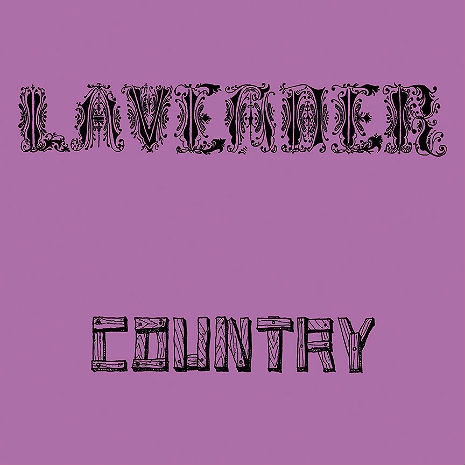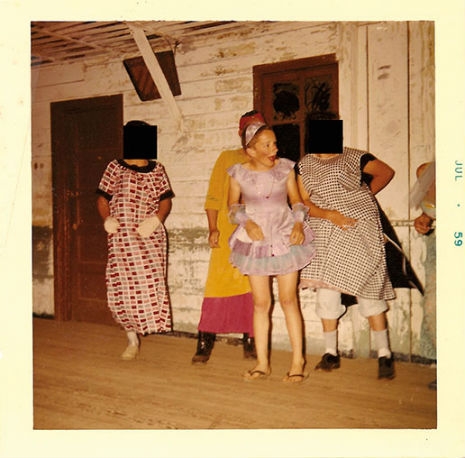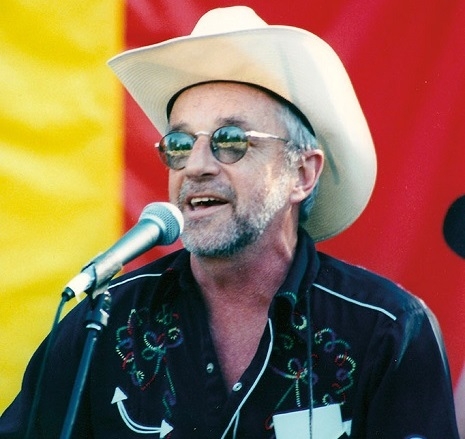
For better or worse, the primary milieu attributed the gay American man is camp, and gay art can often suffer some typecasting and miscategorization as a result. It’s not like I don’t love camp, and I think campy stuff should be afforded far more dignity than it usually is, but the campy crown can be a little restrictive when art defies expectations. I’ve raved about the song, “Cryin’ These Cocksucking Tears” by Lavender Country for years now, but the cheeky title always seems to conjure (erroneous) images of a queer Hee-Haw novelty act. While Lavender Country is sardonic, and most certainly witty, they’re absolutely devoid of camp. Their self-titled 1973 album is simultaneously brutal and heartfelt.

Patrick Haggerty in drag during a 4H play, 1959
Patrick Haggerty grew up on a dairy farm in Washington state, but with a supportive father who allowed him to dress in women’s clothes and try out for cheerleading wearing glitter. After being dismissed from the Peace Corps for his sexuality, Haggerty made his way to Seattle and formed Lavender Country in 1972. The eponymous album was recorded with help from the Seattle gay and lesbian community, and it’s now recognized as the first openly gay country record. It’s been a rare collector’s item for years, but was recently released on North Carolina label, Paradise of Bachelors.

Only known band photo
The songs are often overtly political—you can hear it most explicitly in what is arguably the record’s foundational anthem, “Back in the Closet.” Turning a critical eye to the counterculture of the 60s and 70s, the lyrics tell the story of a literal revolution, where feminists, workers, Black Panthers and gay people fight for a new world. They emerge victorious, but after the dust settles, gays are marginalized once again, this time by their so-called comrades. It’s the kind of bitter story-telling that’s just so darned perfect for country music.
But it’s the aforementioned “Cryin’ These Cocksucking Tears” that I heard first and it remains my favorite Lavender Country song. Haggerty describes it as, “both the boon and the bane of Lavender Country,” with its scandalous title and pull-no-punches lyrics. A lesbian DJ friend of his was even kicked off the radio for playing it. It’s definitely their best-known track since it was up on YouTube years before the re-release of the record, and though Haggerty has since made peace with his most infamous song, it definitely eclipsed his larger artistic project at times . Don’t let the incendiary title mislead you though. With lyrics like, “I’m fighting for when there won’t be no straight men, ‘cuz you all have a common disease, can’t give very much, for loving and such, but you take wherever you please,” it’s a scathing take-down of the worst tendencies of masculinity and as feminist as anything.
What I can’t stress enough is that Lavender Country isn’t “merely” just a groundbreaking album in terms of gay visibility and explicit politics, it’s a really, really excellent country album. I don’t just recommend it for the novelty of them being the first gay country band—anyone who digs Graham Parsons or Emmylou Harris will find it a beautiful record.

Lavender Country’s Patrick Haggerty in 2000 at Seattle Pride
Via Pitchfork